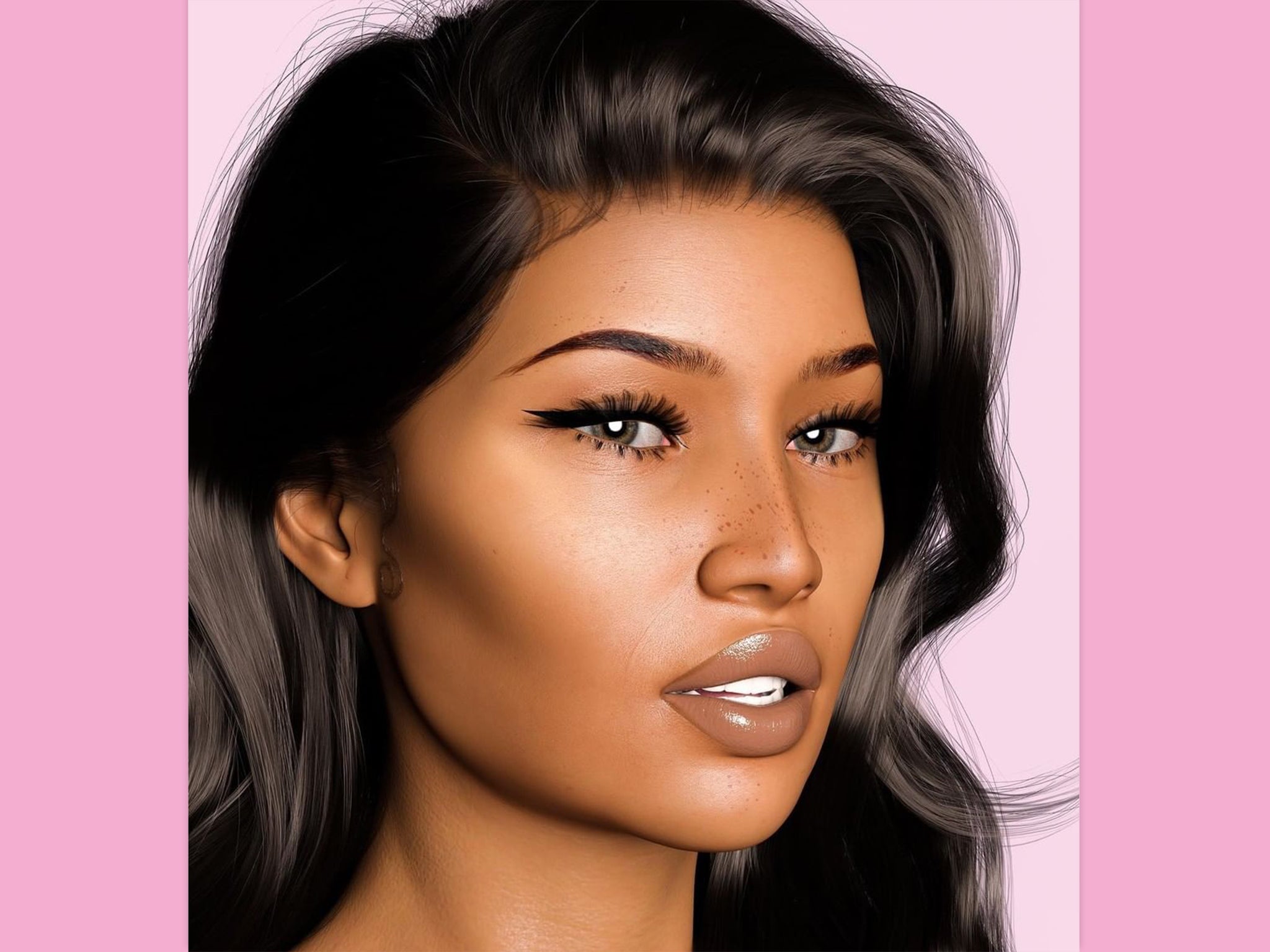‘A massive step back’: Shoppers react to PrettyLittleThing’s CGI model
The size 8 virtual model is described as being the ‘beginning of the PrettyLittleThing Metaverse’

Your support helps us to tell the story
From reproductive rights to climate change to Big Tech, The Independent is on the ground when the story is developing. Whether it's investigating the financials of Elon Musk's pro-Trump PAC or producing our latest documentary, 'The A Word', which shines a light on the American women fighting for reproductive rights, we know how important it is to parse out the facts from the messaging.
At such a critical moment in US history, we need reporters on the ground. Your donation allows us to keep sending journalists to speak to both sides of the story.
The Independent is trusted by Americans across the entire political spectrum. And unlike many other quality news outlets, we choose not to lock Americans out of our reporting and analysis with paywalls. We believe quality journalism should be available to everyone, paid for by those who can afford it.
Your support makes all the difference.Fast fashion brand PrettyLittleThing (PLT) has sparked controversy by introducing a computer-generated model to show off its products.
Described as being the “beginning of the PrettyLittleThing Metaverse”, the virtual avatar was revealed earlier this month, and will appear as a model on the PLT website.
In a press release, PLT said: “We want to make our girl as relatable and real to our customers as possible. We will build her lifestyle based off our customers interests, likes and dislikes.
“A true ambassador for the brand. She will have ways about her that will be unique to only her and we look forward to developing her capabilities over the coming months allowing our customers to learn a lot more about her and what’s to come as we enter into the Metaverse.”
According to the brand, the avatar will “evolve” and “show a range of emotions to truly react with the PLT customer”.
Writing on Instagram earlier this week, PrettyLittleThing shared a photo of a CGI model, and wrote: “I finally have a name! 😍💕Thank you to everyone for your suggestions 🥰This one feels right...Luna ✨We’ll be bringing more girls like me to life very soon. I can’t wait to make our model family even bigger 🌐”
However, customers and fans of the clothing outlet called the move a “tone deaf, backwards idea”.
One person said: “This idea is a disgrace, real people/models all the way! We don’t need robots or unrealistic computerised images.”
Another responded: “This is such a massive step back.”
One woman wrote: “Not only does this take away jobs, but I’ll no longer buy from you if I can’t even see what I'm buying on a real body.”
Another said: “How will I know what the clothes actually look like when the image will be computer generated? Who wants to see a sims character modelling a dress instead of a real human? We want to see how clothes look on REAL bodies. What is this nonsense????”
A further user said PLT’s CGI avatar is “disconnecting us further from real life, real people, real figures, real skin and real expectations.”
A spokesperson for Pretty Little Thing told The Independent that the launch of its first virtual model is the brand’s “first step into the metaverse”.
“We understand that our Gen-Z customers have a strong interest in the virtual world, and this is not to replace our current existing models that feature across our website. We will be looking to design more models in our new ‘virtual’ world to show different shapes, sizes, and ethnicities.
“We have no plans to stop using human models across our e-comm platform. As a brand we pride ourselves on being at the forefront of social media and keeping up with social trends we know our customers are interested in. We have also listed the models’ measurements on our website so our customers can view as a size guide as we do with our regular models.”
Join our commenting forum
Join thought-provoking conversations, follow other Independent readers and see their replies
Comments